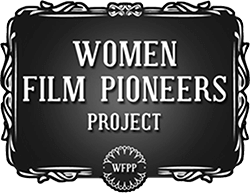Call for Chapters: Women and Historical Moviegoing
In 1994, Jackie Stacey reflected that there is “a history of female cinematic spectatorship which has yet to be written.” (1994, 49). Annette Kuhn made a similar observation, when she suggested that “we hardly know” the British audiences who watched movies in the 1930s. (2002, 3) This edited volume wishes to build upon these observations, by expanding their meaning in terms of the people involved, both in terms of timeframe and in terms of specific demographics. We therefore invite papers focusing on historical female audiences in the broadest sense.
In many ways, this effort is inspired by trailblazing works by Shelley Stamp, Diana Anselmo and Miriam J Petty. These feminist scholars shift their focus from film-text to the analysis of responses to movie culture generated by defined social groups in a culturally and geographically specific settings. Although different in terms of the audiences they examine, these intellectual efforts use a vast array of historical sources – from fan magazines and personal correspondence, through oral histories – and their ultimate aim is to illuminate the modes of spectatorship that are excluded from the elitist, patriarchal discourse.
We seek to hear from scholars focusing on rediscovering or uncovering the history of women’s engagement with film and star culture. This includes audiences marginalised through gender, but also through racial, ethnic, sexual and religious identity, or through geographic or linguistic distance.
This edited volume is a part of the recent shift in new cinema history, which includes broader considerations of cinemagoing as both spatial and social experience. The study of historical moviegoing has made tremendous strides in the last decade. It has been represented by large, intra-University projects such as Cultural Memory and British Cinema-going (University College London, 2013 – 2015), Italian Cinema Audiences: A Collaborative Research Project on Cinema-going in 1950s Italy (University of Bristol, Oxford Brookes, University of Exeter, 2013 – 2016) and European Cinema Audiences (Oxford Brookes, Ghent University, De Montfort, 2018 – 2021). The essential premise of this volume is that audiences play an active role in constructing the meanings of cultural texts, and that conceptualisations of femininity and womanhood influence the ways in which these audiences understand and consume cinema.
Potential topics include different perspectives on women and historical moviegoing and fandom. They include, but are not limited to:
- Historical perspectives on cinemagoing in ethnic communities
- Immigrant spectatorship
- The consumption of Hollywood movies by women
- LGBTQ+ fandoms
- Methodologies to access historically lost audiences
- Film archives and the marginalised audience
- Black women as movie fans
- Studies of film reception amongst specific religious groups
- Women-only film screenings and film clubs
- Characteristics of marginalised spectatorship
- The methodological challenges in examining female audiences
- Working class women and the movies
- Women and film criticism
- Gender and race-specific viewing pleasures
- National minorities and cinema culture
- Girlhood and fandom
- Geographically specific viewing practices
- Case studies on historical female fandom
Please be advised that the edited volume will deal with historical research, so for this purpose we will not be interested in works that focus on contemporary contexts.
Please send a 400-word abstract – including six keywords and author’s bio – to Agata Frymus (agata.frymus@monash.edu) and Lies Lanckman (l.lanckman@herts.ac.uk) by 5 February 2021. The authors will be notified if their submissions were successful on 5 March 2021.
